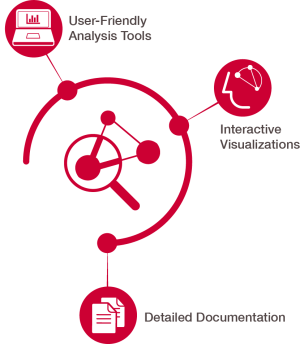|
The GDC provides an array of interactive, web-based Analysis Tools for performing in-depth gene- and variant- level analyses. The workflow is cohort-centric, meaning analyses are specific to a researcher's cohort of interest.
|
Documentation
Data Analysis Tools
The GDC provides interactive, cohort-centric tools for analyzing genomic and clinical data.
Data Analysis Policy
Policies and guidelines for appropriate use of data, are provided by the GDC whether open- or controlled- access.
Data Harmonization and Generation
The GDC developers best-in-practice pipelines for processing the most common molecular platforms. Variant calling, gene expression analysis, and other pipelines are implemented using software and algorithms selected in consultation with experts in the genomics community.
What’s New with GDC and Cancer Research
Cancer Research Highlights and Publications:
Why does the GDC display common genes such as TTN that are associated with every cancer in the most frequently mutated genes table?
The GDC is not normalizing frequency by gene length. This is currently under discussion. As such, these genes are appearing in the mutated genes table. Users can filter by the COSMIC Cancer Gene Census to display only genes for which mutations have been causally implicated in cancer.
Need help with data retrieval, download, or submission?

